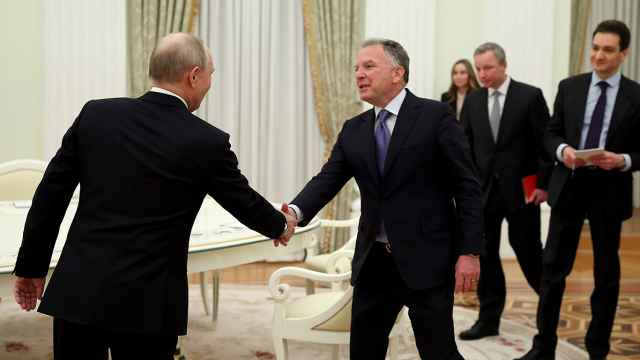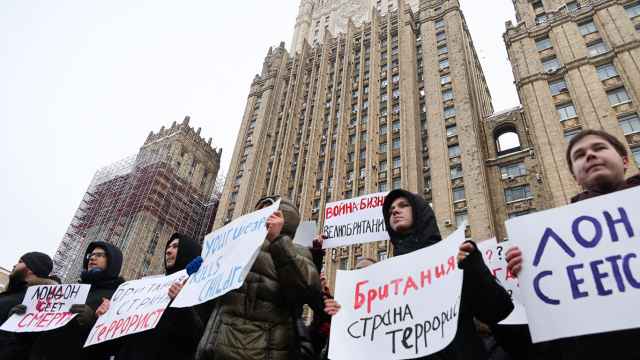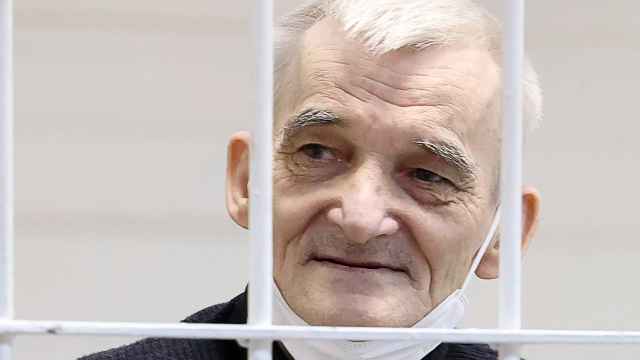It is well-known that those guilty of murder often cannot resist the compulsion to return to the scene of their crime, even though they know that doing so will put them at great risk of being exposed.
In recent months, the world has witnessed a bizarre manifestation of this phenomenon in the absurd posthumous prosecution and conviction of Sergei Magnitsky, the lawyer who unearthed a brazen $230 million dollar tax fraud scheme perpetrated by Russian police and tax officials. It is as though the Russian government, whose officials were implicated in the 2009 death of Magnitsky, could not keep itself from returning to the shameful events that led to his death. In so doing, Russia has put the depth of its legal bankruptcy and corruption on full public display.
In any nation with a legitimate legal system, Magnitsky would have been lauded as a whistleblower for his integrity, and the embezzlers, extortionists and those responsible for his death in pretrial detention would have been thrown in jail. In Russia, precisely the reverse happened. Magnitsky was instead arrested and charged with the very fraud he had uncovered and he died in prison after being severely beaten and being denied medical treatment. His death might have passed largely unnoticed as just another small tragedy in a nation where rule of law has become a thing of the past. But Magnitsky's former client, Hermitage Capital CEO Bill Browder, felt a deep sense of responsibility to do everything in his power to attain a degree of justice for someone who had sacrificed his life in pursuit of integrity and the truth.
Thanks to the determined efforts of Browder and widespread outrage over the Magnitsky case, the U.S. passed a law imposing financial and visa sanctions on Russian officials implicated in Magnitsky's death and in other human rights violations. Other nations are considering following suit. In their apparent fury after being exposed on a global scale, Putin's government responded by doubling down against the victim. While clearing the dozens of officials implicated in the embezzlement scheme and Magnitsky's death, the authorities instead put the heroic whistleblower on posthumous trial and, in a pre-determined outcome, he was duly convicted several weeks ago.
It might have been simpler and cheaper for the Russian government to take out full page ads in the world's major newspapers proclaiming"Medvedev Was Right About Russia's Legal Nihilism." Putin's government has made this point excruciatingly clear through the ongoing persecution and flogging of a dead whistleblower and hero. Perhaps they intended to demonstrate the range of their might and power through this action, but instead they have exposed the brittle weakness and widespread corruption within the country's bloated bureaucracy. It proved to be too risky to prosecute the wrongdoers. Pulling on any of those threads could lead to a dangerous unraveling, and once things begin to unravel it is hard to know just where the threads will lead.
One thing is certain, however: In is inevitable that at some point in the near future, this tangled web of criminality and corruption will unravel. When that happens, Magnitsky will be recognized as a Russian patriot — a person who displayed heroic bravery, integrity and honesty. As for those responsible for victimizing him twice, they will no doubt have reason to curse their decision to return to the scene of their crimes.
Katrina Lantos Swett is president of the Lantos Foundation for Human Rights and Justice in Concord, New Hampshire.
A Message from The Moscow Times:
Dear readers,
We are facing unprecedented challenges. Russia's Prosecutor General's Office has designated The Moscow Times as an "undesirable" organization, criminalizing our work and putting our staff at risk of prosecution. This follows our earlier unjust labeling as a "foreign agent."
These actions are direct attempts to silence independent journalism in Russia. The authorities claim our work "discredits the decisions of the Russian leadership." We see things differently: we strive to provide accurate, unbiased reporting on Russia.
We, the journalists of The Moscow Times, refuse to be silenced. But to continue our work, we need your help.
Your support, no matter how small, makes a world of difference. If you can, please support us monthly starting from just $2. It's quick to set up, and every contribution makes a significant impact.
By supporting The Moscow Times, you're defending open, independent journalism in the face of repression. Thank you for standing with us.
Remind me later.





